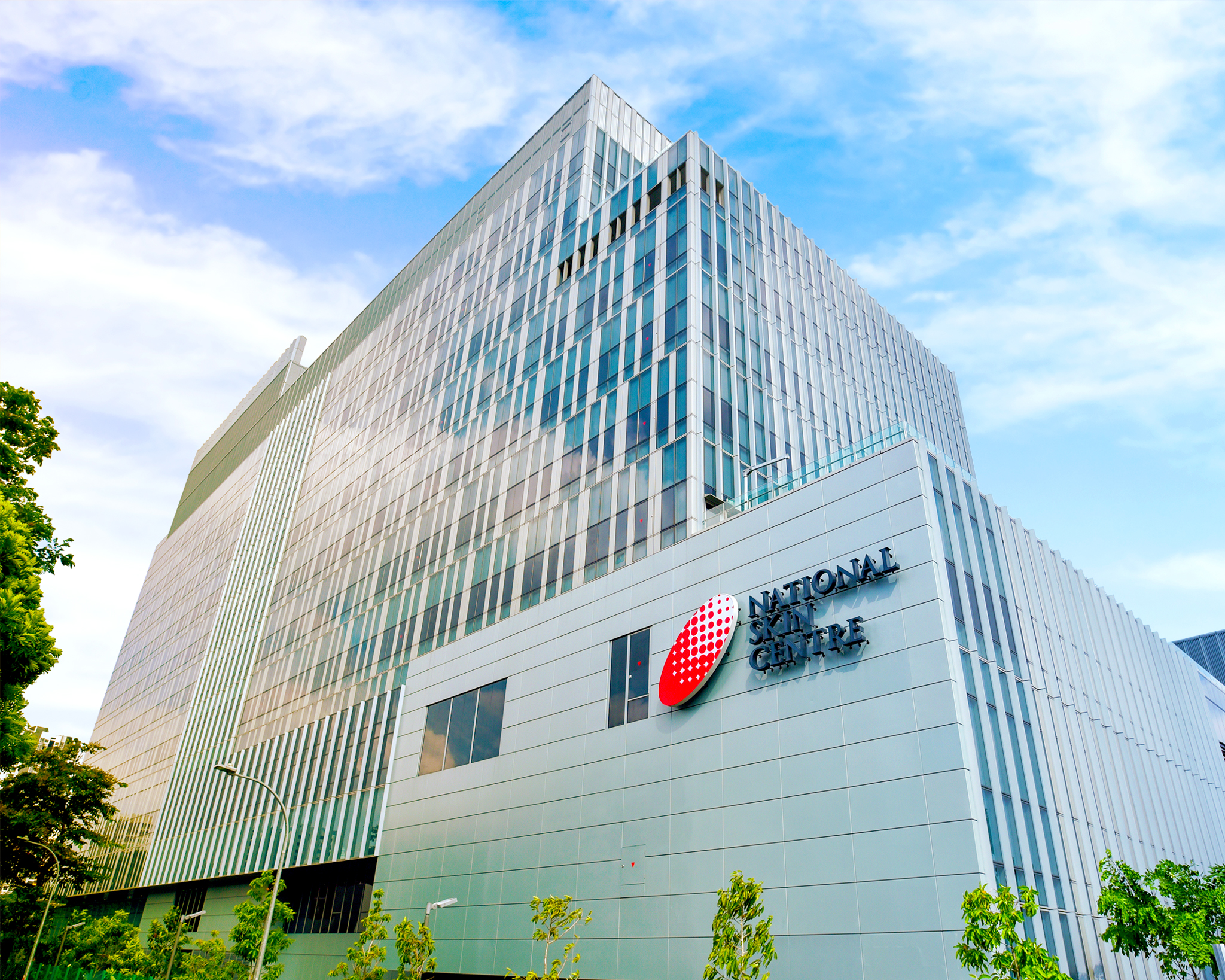
The National Skin Centre (NSC) officially opened its new building today, with Minister for Health Mr Ong Ye Kung as the Guest-of-Honour. Equipped with enhanced capacity and resources, the redeveloped NSC aims to better address the diverse and evolving skin health needs of our population.
In Singapore, based on the Global Burden of Disease 2019 findings, skin and subcutaneous diseases were the eighth leading cause of non-fatal disease burden for years lived in disability. Professor Tan Suat Hoon, Director, NSC, said: “The incidence of chronic skin diseases would inevitably rise in tandem with our rapidly ageing population. Elderly patients are also more likely to experience co-morbidities and require complex care. Take for instance, Singapore's higher life expectancy would lead to increased cumulative lifetime sun exposure, thus, resulting in an upward trend of skin cancers among those of advanced age. The new building's expanded facilities will enable NSC to better care for this vulnerable segment of our population."
NSC's new building is more than double the size of its former building, with an expanded floor area of 25,300 square metres and has been operational since June 2023. Standing ten storeys, it has 69 consultation rooms, compared to 40 in the former premises. With over 20 subspecialties available, including adult eczema, skin cancer, and itch, NSC is one of the largest dermatology centres in the world. Such growth is necessary, given that NSC manages about 70 per cent of overall outpatient dermatology attendances among public healthcare institutions. In 2022, it saw some 280,000 outpatient attendances. The new building is expected to accommodate a 30 per cent increase in annual attendance by 2030.
Seamless design for improved patient experience
Clinic areas are designed to ease patient navigation through the building and facilitate multidisciplinary care. For example, all general and subspecialty clinics housed in cohort clinics have a linear, unidirectional flow around a core of treatment rooms and a laboratory. There are designated spaces adjoining consultation rooms for residents, nurses, and pharmacists to co-manage cases alongside doctors, to provide better coordinated care.
Intravenous infusion services to integrate care and boost patient safety
With NSC's new Skin Allergy and Therapy Clinic (SATC), patients can now receive intravenous (IV) medications without having to be referred to an inpatient hospital. This improves the experience of patients with moderate to severe Pemphigus, for example, who are prescribed medication (Rituximab) that is administered intravenously. The facilities also enable the evaluation of patients with suspected allergies to IV drugs in a safe and comfortable environment.
Expansion of phototherapy resources
To better cater to patients who require skin directed therapy, NSC has expanded its phototherapy resources by some 30 per cent. The introduction of a new Ultraviolet A1 (UVA1) phototherapy cabin reduces treatment time for patients suffering from conditions such as eczema, scleroderma, and mycosis fungoides. Panel devices for localised treatment can be time-consuming if patients attempt to treat multiple sites – the UVA1 cabin addresses this concern by delivering whole body phototherapy, thereby providing patients with greater time savings and convenience.
Research capabilities to drive advancement in dermatology care
As a national specialty centre, NSC plays a key role in dermatology research. The new Skin Research Clinic is dedicated to patient-involved research, facilitating clinical trials, and providing a private and comfortable experience for patients. There are also purpose-built spaces for bio-banking and cell culture that accord ample room and optimised conditions for specimen storage. These facilities will help catalyse the translational research efforts of clinician-scientists at NSC, bringing about meaningful benefits and health outcomes to our patients and population.
The redevelopment of NSC is part of the HealthCity Novena master plan, a 17-hectare mega-project that aims to create an integrated eco-system encompassing health services, research and education, as well as public areas. NSC's new building is among the developments planned for the first phase, which include the Lee Kong Chian School of Medicine's Clinical Sciences Building, National Centre for Infectious Diseases, Ng Teng Fong Centre for Healthcare Innovation, and Tan Tock Seng Hospital Integrated Care Hub.